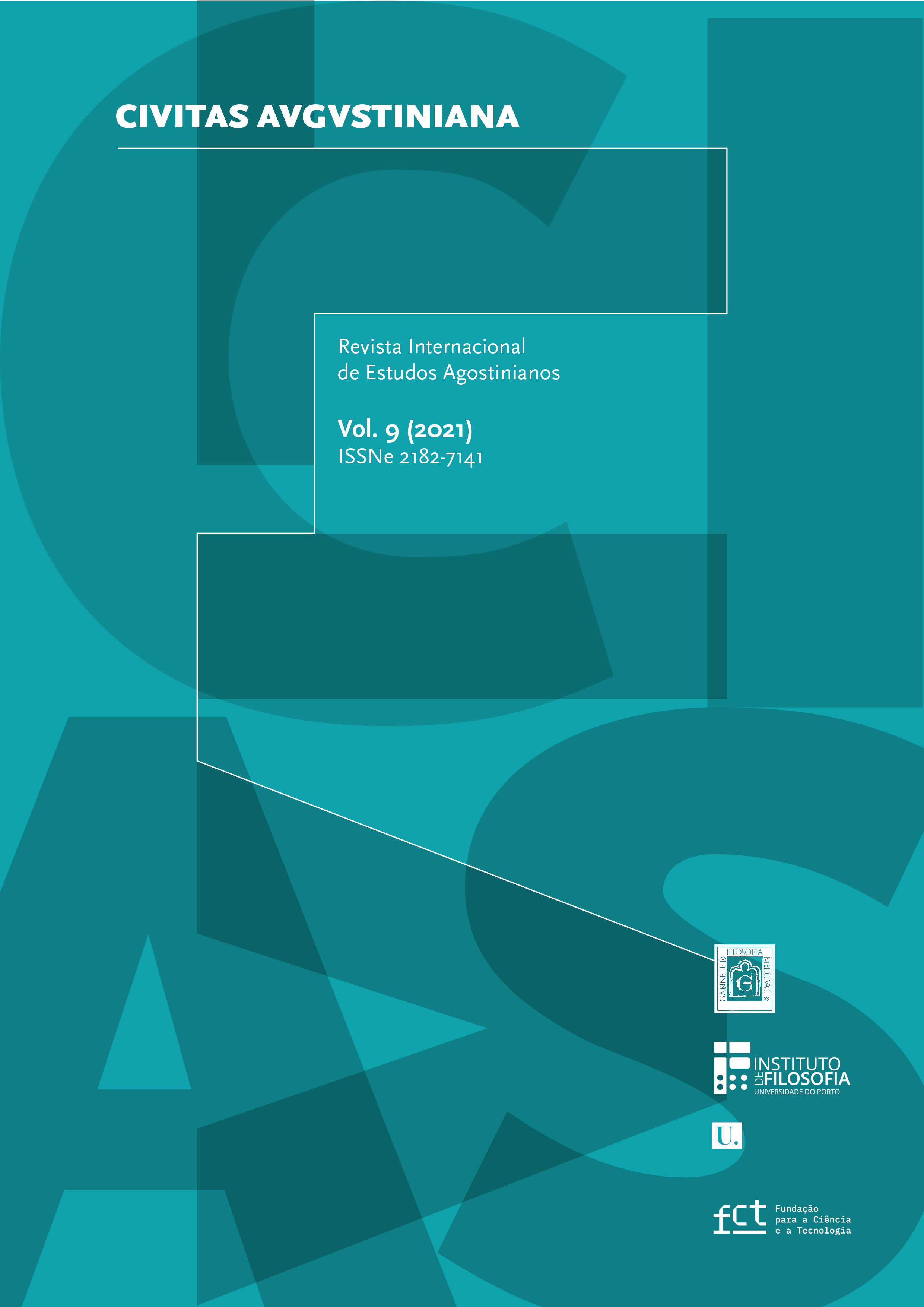Graça e heteronomia na antropologia relational de Agostinho de Hipona
Resumo
Este artigo irá discorrer sobre o horizonte relacional de Agostinho de Hipona (354-430) com um enfoque na perspectiva da graça e da heteronomia em Confissões e na controvérsia pelagiana. Graça e heteronomia se inserem biograficamente em Confissões, através de uma narrativa autobiográfica como testemunho da graça. Posteriormente, graça e heteronomia são realçadas na polêmica contra os pelagianos, no qual Agostinho reafirma sua doutrina do pecado original, a solidariedade da raça em Adão e a necessidade da graça de Cristo. A perspectiva antropológica agostiniana questiona uma visão autocentrada de autonomia humana e enfatiza sua dependência de um horizonte relacional. Elaborar-se-á uma síntese a partir de três eixos: (i) a heteronomia como expressão de uma antropologia dramática de busca e encontro (ii) a autonomia autêntica construída sobre o alicerce da heteronomia, sem opor-se à responsabilização humana (iii) a heteronomia não nega a singularidade, mas a reconhece dentro de um horizonte relacional responsivo.
Downloads
Publicado
Edição
Secção
Licença
Direitos de Autor (c) 2022 DAVI C. RIBEIRO LIN, ANTHONY DUPONT

Este trabalho encontra-se publicado com a Creative Commons Atribuição-NãoComercial 4.0.




